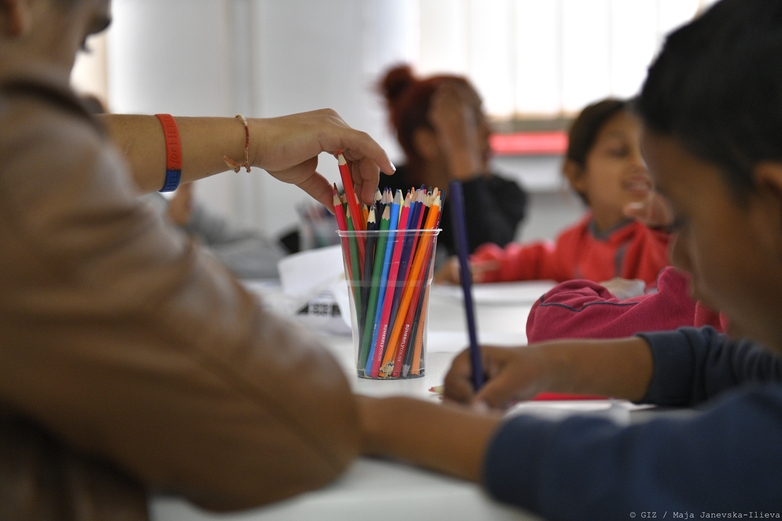Promoting the social inclusion of disadvantaged groups in the Western Balkans
Social Inclusion of Disadvantaged Groups in the Western Balkans (SoRi III)
-
Commissioning Party
German Federal Ministry for Economic Cooperation and Development (BMZ)
-
Country
-
Lead executing agency
More
-
Overall term
2022 to 2025
-
Products and expertise
Governance and Democracy

Context
Accession to the European Union is a declared political goal of Albania, Bosnia and Herzegovina, Kosovo, North Macedonia and Serbia. This drives social policy reforms and inclusion. However, real progress in this area is slow, and implementation of the ‘leave no one behind’ principle is limited.
The most socially and economically disadvantaged groups include ethnic minorities (especially Roma), people with disabilities, single mothers, elderly people, victims of (domestic) violence, the LGBTIQ+ community, people in rural areas, as well as returnees from the EU countries. They face practical problems like inadequate infrastructure, limited access to education or childcare, social protection and health services. Many struggle to find and keep employment as well.
In addition, state and non-state entities lack the sufficient funds, capabilities and the relevant data to design and offer needs-oriented services.
Objective
Local governments in the Western Balkans are improving the social and economic inclusion of vulnerable groups at local level.

Approach
The project enables local actors to identify, develop and apply strategies to ensure rights and access to services for disadvantaged groups. Concrete activities include awareness-raising, day care centres, inclusive disaster risk management, mobile outreach teams and social dialogue forums.
The project focuses on three fields of action:
- Fostering regional dialogue on social inclusion to share experiences and assist local government associations in better promoting social inclusion locally and nationally
- Enabling municipalities to introduce needs-oriented social approaches based on the findings of social mappings, thus also ensuring evidence-based decision-making locally
- Supporting disadvantaged groups in finding inclusive employment using the social mentoring methodology.

Last update: January 2023





